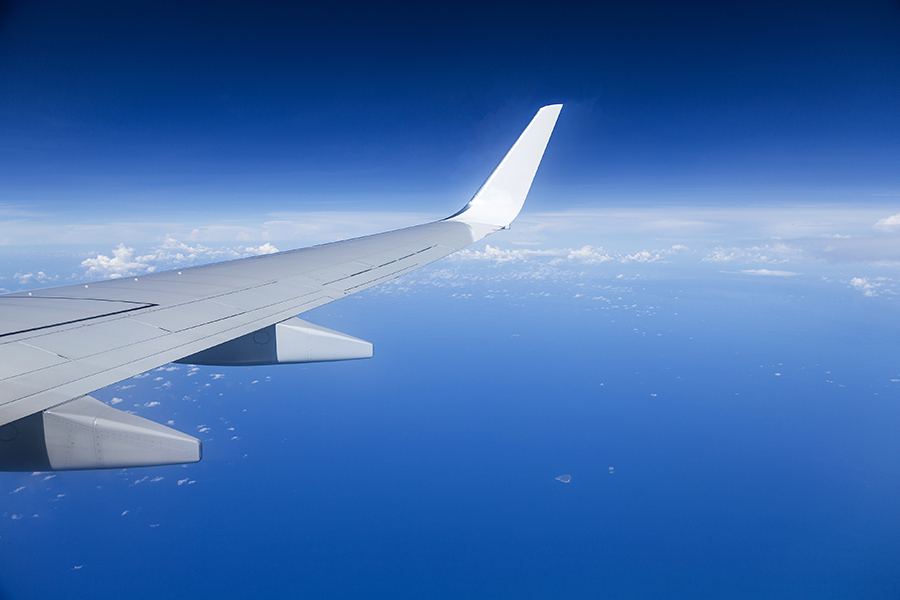
Dr Anandadeep Mandal
Department of Finance, University of Birmingham
With the ongoing vaccine programs around the world, international travel may soon take off again. But the key question is whether it will return to pre-COVID level or will it be a new-normal.
The impact of COVID-19 on tourism and international travel has been unprecedented. Global international tourist arrivals witnessed a decline of more than 70% from February 2020 to the beginning of 2021, with several countries closing their borders. Throughout this, airlines have been proactive in converting passenger jets into freighters. With the boom of e-commerce during the pandemic, the passenger-to-freight conversion is expected to rise by 35% in 2021. This has also been triggered by the steep decline of the value of used planes since the beginning of February 2020. This has created huge opportunities for passenger-to-freight conversion companies like Singapore Technologies, and Aeronautical Engineers Inc, etc.
COVID-19 brought an end to global tourism in 2020. Destinations that are reliant on international tourists have suffered the most. Many such places are in developing countries, such as Thailand, where tourism contributes to 15% of the country’s GDP. Interestingly, before the ongoing pandemic there was much debate and concern on whether global tourism has become too big to adversely affect our ecosystem. Considerations were made to restrict and limit tourism while making it more environmentally sustainable.
Post-January 2021, the roll out of various vaccination programmes around the world brought hope for international travel to resume. However, the emergence of COVID-19 mutations has caused a major disruption in rebooting international travel. With the emergence of more transmissible Virus of Concern (VOC, B117) in the UK and VOC N501Y in South Africa in the recent months, many countries have closed their borders with rising COVID-19 infections and deaths.
I believe that apart from rapid uptake of vaccines across different countries, there are three other key issues that will dictate the future of passenger aviation.
Country specific and global travel regulations: COVID-19 vaccination is expected to be a necessity to board international flights. This is necessary to ensure safe travel and hence this norm should be rapidly adopted by the airline industries and must be supported by all the governments globally. Further, it is advisable to have these applied more broadly amongst hotels and destination resorts.
Role of governments will be a key to ensure safe travel and meeting health requirements. One way is to introduce digital-health passes that will have a record of the passenger’s vaccination profile and health concerns. Use of biometric services is expected to increase, enabling touchless travel. In flight services will be revised and scaled down to address the new norms.
Other health measures such as use of masks, social distancing, and pre-departure and arrival testing should be made mandatory over the next 36 months. One of the major setbacks is the quarantine period. Travellers cannot afford long quarantines. Thus, stringent pre-travel health checks and arrival-testing should be made mandatory to ensure ease of travel.
Restoration of transportation infrastructure and networks: It is unlikely that air traffic and international travels will reach it pre-pandemic levels before the first quarter of 2024. One of the basic requirements for tourism and international travel to restart is to restore transportation infrastructure and networks. Many planes are parked in the barren lands of Australia and US. Thus, not only do the planes require servicing, but also restabilising the air routes is a big challenge. As the airlines will take time to build the networks up, this will lead to longer journeys and less frequent connections. It is expected that smaller and efficient aircrafts will outperform the rest. Moreover, airports will require permanent configurations to handle automated biometric checks, testing arrangements and providing necessary healthcare facilities.
Adoption of new safety protocol and travel confidence: The future of the airlines depends a lot on how responsive the travellers are to adapt to the new mandatory safety protocols. Their delay and hesitancy in accepting the new norms, such as vaccinations, use of masks, and pre-travel health check-ups will delay the efforts to roll back international air travel to pre-COVID level.
Moreover, the key to bring back travellers confidence will be to ensure safety norms and precautionary measures, including sanitation, COVID tests, and ensuring social distancing throughout the global travel supply chain.
The views and opinions expressed in this article are those of the author and do not necessarily reflect the official policy or position of the University of Birmingham.
